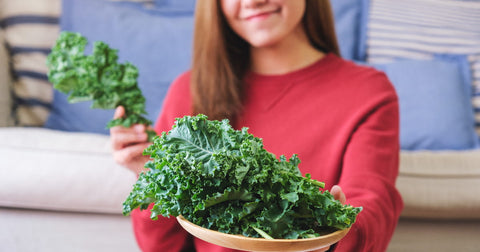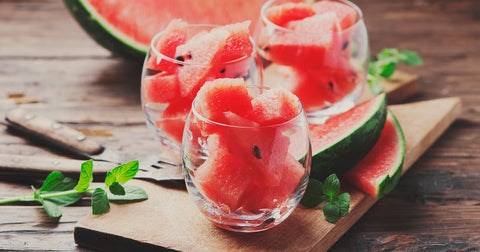Sorbitol, a sugar alcohol commonly found in various foods and beverages, is often touted for its low calorie content and sweetness. However, for some individuals, consuming sorbitol can lead to a range of digestive side effects.

If you're experiencing digestive issues like bloating, gas, or diarrhea, it's worth exploring whether sorbitol might be a contributing factor. This article will delve into the effects of sorbitol on digestion, highlight potential side effects, and guide you towards making informed dietary choices.
What is Sorbitol?
Sorbitol is a type of carbohydrate called a sugar alcohol. It's naturally found in some fruits, but it's also commonly used as an artificial sweetener in sugar-free foods and beverages.
Sorbitol Structure: A Closer Look
Sorbitol's chemical structure is similar to that of sugar, but it's not fully absorbed by your body. This unique characteristic contributes to its low calorie content and its potential to cause digestive issues in some individuals.
Sorbitol and Digestion: The Gut Reaction

When you consume sorbitol, it travels to your large intestine, where it's fermented by gut bacteria. This fermentation process can produce gas and other byproducts that can lead to digestive discomfort.
5 Sorbitol Side Effects: Navigating Digestive Distress
1. Bloating and Gas:
The fermentation of sorbitol in the gut can lead to excessive gas production, causing bloating and abdominal discomfort.
2. Diarrhea:
Sorbitol has a laxative effect, as it draws water into the intestines. Consuming too much sorbitol can lead to diarrhea.
3. Abdominal Cramps:
The gas and bloating associated with sorbitol can also trigger abdominal cramps.
4. Nausea:
In some cases, sorbitol can cause nausea, especially when consumed in large amounts.
5. Malabsorption:
For individuals with certain digestive conditions, like irritable bowel syndrome (IBS), sorbitol can worsen malabsorption of nutrients, potentially leading to nutritional deficiencies.
Which Fruits Contain Sorbitol?
While sorbitol is found in many sugar-free products, it also occurs naturally in certain fruits, including:

-
Apples
-
Pears
-
Peaches
-
Prunes
-
Cherries
-
Avocado (in smaller amounts)
Food Intolerance and Sorbitol Sensitivity
If you experience digestive issues after consuming foods containing sorbitol, it's possible you have a sensitivity or intolerance to this sugar alcohol.
A food sensitivity test kit can help you identify specific foods that might be triggering your symptoms. By eliminating or reducing these trigger foods, you can potentially alleviate your digestive discomfort and improve your gut health.
Key Takeaways:

-
Sorbitol is a sugar alcohol that can cause digestive side effects like bloating, gas, and diarrhea in some individuals.
-
It's found in various sugar-free products and also occurs naturally in certain fruits.
-
If you experience digestive issues after consuming sorbitol, consider a food sensitivity test to identify potential triggers.
Remember, this article is intended for informational purposes only and should not be considered a substitute for professional medical advice. If you have any concerns about your health or digestive system, consult a qualified healthcare professional.
Frequently Asked Questions:
1. Is sorbitol safe for everyone?
While sorbitol is generally recognized as safe, some individuals are more sensitive to its effects and might experience digestive discomfort even with small amounts. If you have a sensitive stomach or a history of digestive issues, it's best to consume sorbitol in moderation or avoid it altogether.
2. How can I tell if I have a sorbitol intolerance?
If you experience symptoms like bloating, gas, or diarrhea after consuming foods containing sorbitol, it could be a sign of intolerance. Keep a food diary to track your intake and symptoms, and consider taking a food sensitivity test to confirm your sensitivity.
3. What are some common foods and drinks that contain sorbitol?
Sorbitol is often found in sugar-free gum, candies, and baked goods. It's also used in some medications and personal care products like toothpaste and mouthwash. Additionally, it occurs naturally in certain fruits like apples, pears, and prunes.
4. Can I avoid sorbitol completely?
Avoiding sorbitol entirely can be challenging, as it's found in various processed foods and even some fruits. However, reading food labels carefully and choosing whole, unprocessed foods as much as possible can help you minimize your intake.
5. Are there any long-term health risks associated with consuming sorbitol?
While occasional digestive discomfort is the most common side effect, excessive sorbitol intake over a long period might contribute to malabsorption of nutrients or worsen existing digestive conditions like irritable bowel syndrome (IBS).


.png?v=1737390083)
.png?v=1737187409)

